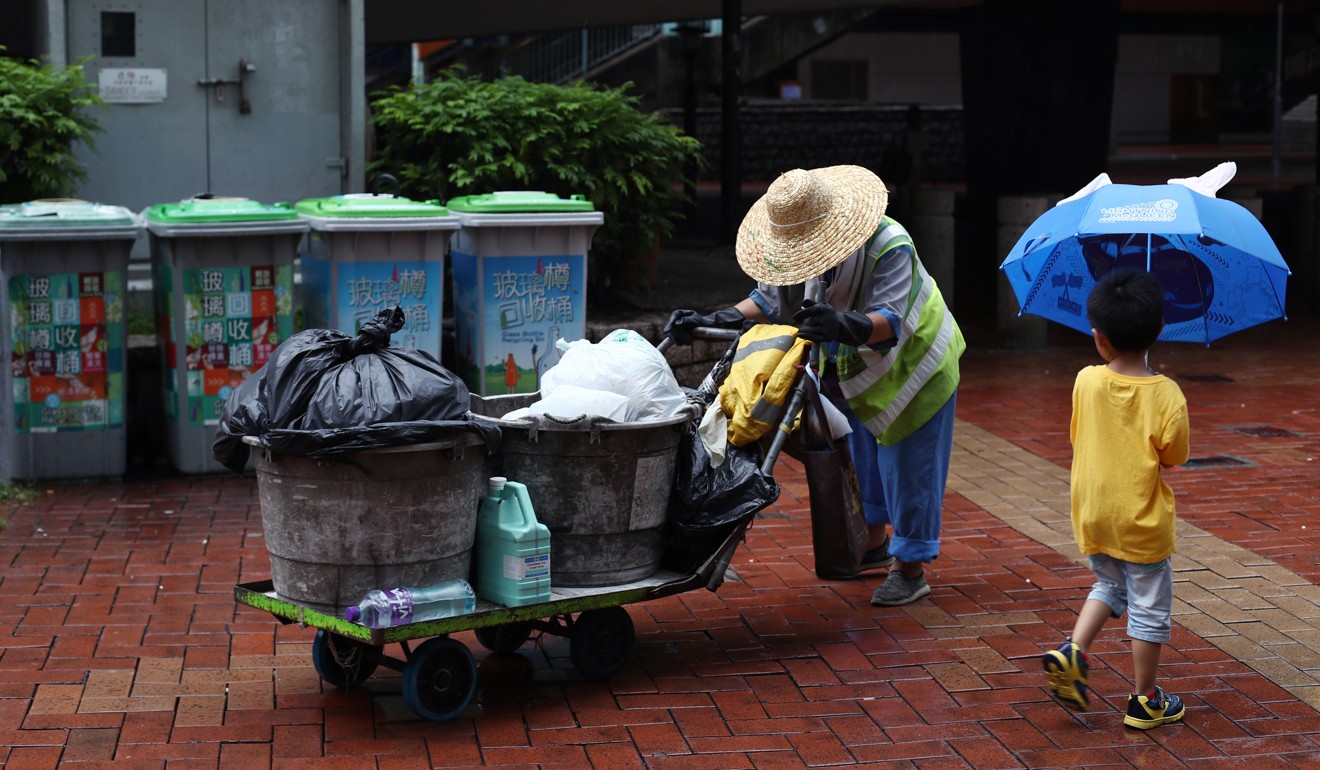
How Hong Kong courts and bureaucrats left elderly street cleaners out in the cold

The 2003 outsourcing of around 10,000 of the poorest civil servants into privatised slavery and poverty was about the most indescribably shameful, uncaring and unjust act imaginable (“Don’t treat us like trash”, September 8).
But for that monstrous bureaucratic crime, most of the cleaners, now aged over 60, would be enjoying deserved retirement on the modest civil service pensions they were guaranteed under the Joint Declaration and Article 102 of the Basic Law. The government should immediately restore those pension rights to them, plus other just retrospective compensation.
Although, contrary to Article 100 of the Basic Law, senior judges ruled it was constitutional to impose pay cuts – and implicitly outsourcing – on civil servants whose service continued through 1997, those rulings were tragically wrong. The fault lies with the bureaucracy and, even more disappointingly, the judiciary.
After Hong Kong’s extremely neoliberal post-1997 government cut civil service pay in 2003 and the matter went to court, the Court of Appeal ruled that the pay cuts violated Article 100, but this ruling was overturned by the Court of Final Appeal in 2005.

In 1998, in an earlier historical and legal error, the Court of First Instance ruled that Article 100 “is intended to ensure continuity of employment so that no public servant suffers as a consequence of the transition itself [and does not inhibit] new measures for the good governance of Hong Kong”. But “the transition” only extended from the signing of the Joint Declaration in 1984 until Article 100 entered into force on July 1, 1997. From then on, Article 100 protected eligible civil servants from suffering adverse consequences, whether from the government’s or judges’ decisions. The Court of Final Appeal endorsed that claim but failed in its judicial duty to provide analysis to defend it for public scrutiny.
Michael Scott, Tsim Sha Tsui